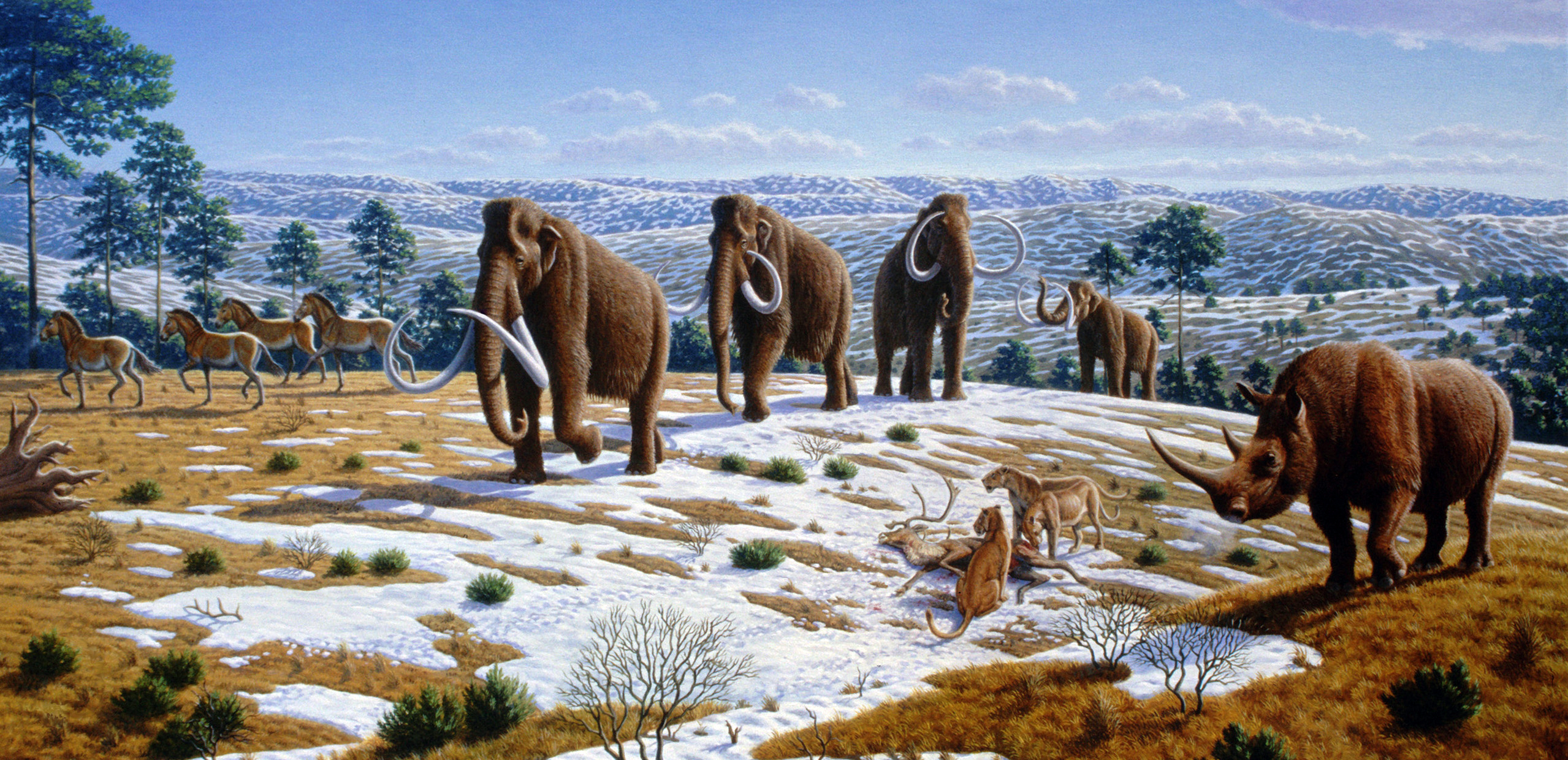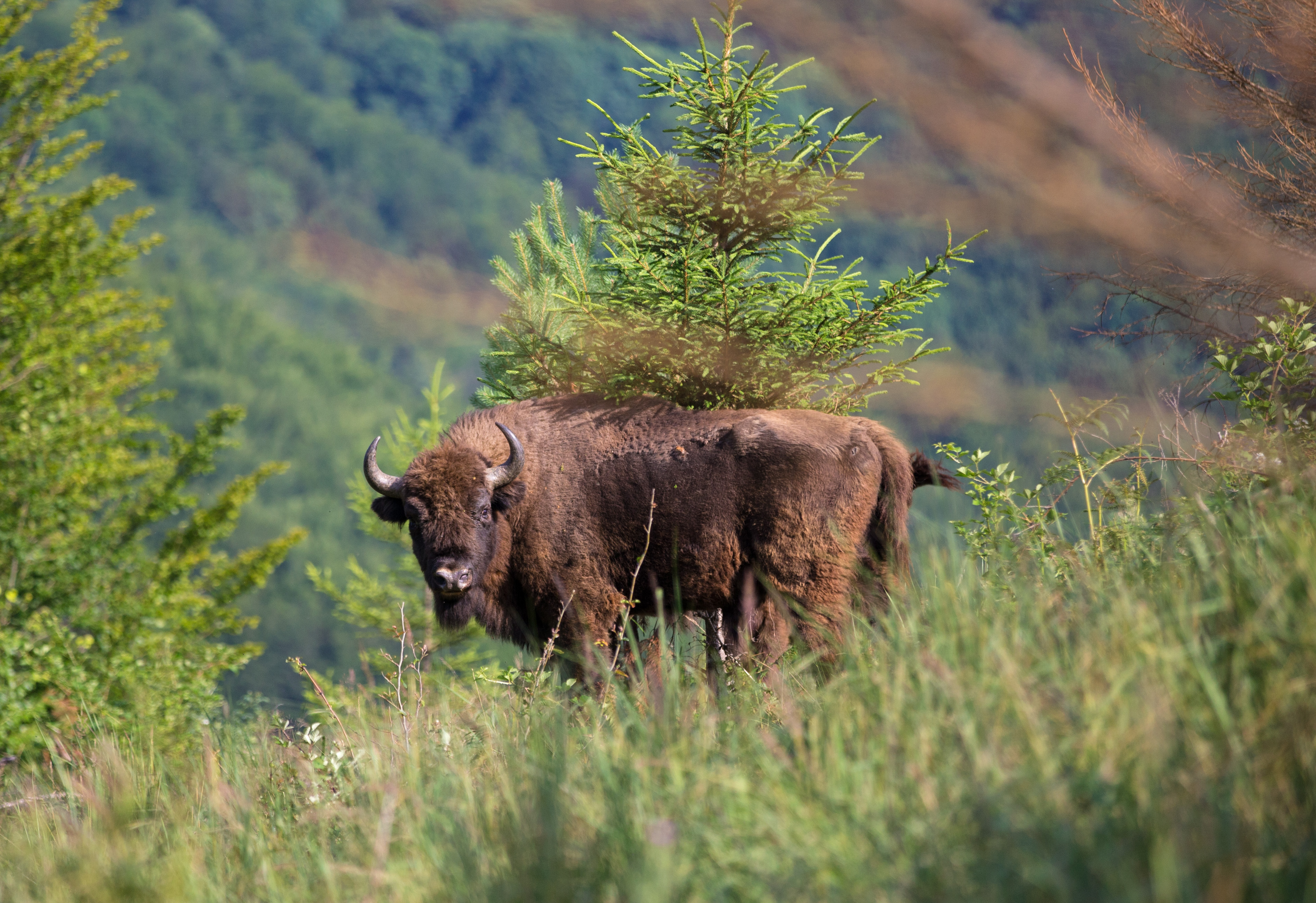UK research shows Arctic rewilding could significantly mitigate climate change
UK expertise, global impact
Research by three University of Oxford scientists (and one Russian scientist) has shown that Arctic rewilding using large herbivores such as bison and horses is economically viable and could slow the rate of climate change if implemented at scale. The research team, which includes Ecosulis Nature Recovery Lead and University of Oxford Honorary Research Associate Dr. Paul Jepson, believe the results of their research now justify practical experimentation.
The groundbreaking results were published in a paper in the January edition of the Royal Society journal Philosophical Transactions B. Their relevance is heightened by the UK's hosting of the UN Climate Change Conference (COP26) in Glasgow in November, and a growing awareness of the importance and potentially huge benefits of implementing natural climate solutions (NCS).
NCS are part of the wider framework of so-called nature-based solutions, which involve working with nature to help address societal challenges.
"The recovery of nature through rewilding, and the associated enhancement of nature-based solutions, is increasingly being accepted as a highly effectively way of addressing climate change," explains Jepson. "As the publication of this new paper shows, UK-based scientists and rewilding-focused consultancies such as Ecosulis are now taking the lead in this regard."
Pivotal permafrost
Arctic and subarctic regions will have a huge role to play in how climate change manifests itself over the coming decades. The gradual thawing of the permafrost - the permanently frozen soil of the Arctic - would release enormous quantities of greenhouse gases (carbon dioxide and methane) into the atmosphere.
The authors of the new paper estimate that carbon emissions from thawing permafrost could be around 4.35 billion metric tonnes per year over the course of the 21st
century. This is around half as much as fossil fuels emissions, and three times more than estimates of the emissions produced by current and projected land use change. Keeping these gases locked up, or at least locked up for longer, is therefore critical to climate change mitigation efforts, and it is here that rewilding can help.
The herbivore effect
During the Pleistocene period (roughly 2.5 million to 12,000 years ago), extensive areas of the Arctic were covered with grassland - this was naturally grazed by herds of bison, horses, woolly rhinoceros and mammoths. But when humans moved into these so-called "mammoth steppe" areas, unsustainable levels of hunting meant populations of these megafauna collapsed, and some became extinct. As a result, the grassland gave way to boggy, peat-forming vegetation.
Arctic rewilding would reverse this process, with the introduction of large herbivores such as bison and horses leading to the removal of woody vegetation and stimulating grass growth. This, in turn, would increase the amount of incoming solar energy reflected back to space (through the so-called albedo effect) by opening up the landscape. By trampling on the snow in search of winter forage, the animals would also allow colder temperatures to freeze the soil to a deeper level in winter.
The cumulative effect of all these changes would be a net cooling of Arctic lands, delaying the thawing of the permafrost and keeping its greenhouse gases in storage for longer.
Visionary thinking
To stabilise the Earth's climate and limit the temperature increase to below 2°C - in line with the 2015 Paris Agreement - there is an immediate need to reduce greenhouse gas emissions and sequester more atmospheric carbon. As COP26 co-host, the UK now has a unique opportunity to ensure that climate change mitigation actions, including NCS, are urgently scaled up.
While the authors of the new paper acknowledge the huge challenges involved in Arctic rewilding, they also believe this visionary approach could effectively complement other NCS.
"The Arctic is already changing, and fast," says lead author Dr. Marc Macias-Fauria, Head of the Biogeosciences Group at Oxford University's School of Geography and the Environment. "Taking a 'do nothing' approach now is a decision to allow rapid, irreversible changes to occur. Although the science of Arctic rewilding is largely untested, it has the potential to make a big difference. Action in this region should certainly be given serious consideration."
"Today governments are spending millions on carbon capture research with very little to show for it," adds Dr. Paul Jepson. "Bold rewilding experiments such as the one proposed in this paper would create new opportunities for addressing climate change. The idea of restoring ecological systems damaged by our distant ancestors to help cool the climate surely has to be worth investigating."
Number crunching
Pleistocene Park, a grassland restoration project currently operating in northeastern Russia, has already shown how Arctic rewilding might work. To further demonstrate what could be achieved, the authors of the new paper propose practical experiments at a larger scale.
The team used fossil records to estimate the density of various animals on the mammoth steppe during the Pleistocene - these included 1 mammoth, 5 bison, 7.5 horses and 15 reindeer per square kilometre. They propose using bison and horses for initial rewilding efforts, with the combined cost of creating and monitoring three, large-scale experimental areas hosting 1,000 animals over a 10-year period estimated to be US$114 million.
On a yearly basis, the team calculate these areas could keep up to 72,000 tonnes of carbon in the ground and generate US$360,000 in carbon revenues alone, with this figure increasing once the research phase was conducted and scaling enabled greater cost efficiency. These returns could be significantly higher if Arctic countries introduced carbon tax and pricing mechanisms.
In the face of such figures, Dr. Paul Jepson believes Arctic rewilding demands further exploration.
"The logistics, costs and social considerations of landscape-scale Arctic rewilding would, admittedly, be huge," says the Ecosulis Nature Recovery Lead. "But as our focus on natural climate solutions sharpens and the need to take decisive climate change mitigation action intensifies, the payoff could be mammoth."
Press contacts
For more information about the new paper, Arctic rewilding and natural climate solutions, please contact Dr. Paul Jepson, Ecosulis Nature Recovery Lead (paul.jepson@ecosulis.co.uk /+44 (0)7741669822).
About Ecosulis
As a leading ecological consultancy and contractor with significant rewilding expertise, Ecosulis restores habitats and enhances biodiversity at sites across the United Kingdom. Underpinned by our investment in cutting edge research, innovation and technology, we work on landscape-scale projects that support wild nature, add value for our clients and benefit wider society. For more details please visit www.ecosulis.co.uk.
Press release distributed by Pressat on behalf of Ecosulis, on Wednesday 12 February, 2020. For more information subscribe and follow https://pressat.co.uk/
Arctic Pleistocene Rewilding Nature Recovery Mammoth Steppe Carbon Climate Change Mitigation Permafrost Thawing Impact cop26 Solutions Business & Finance Charities & non-profits Environment & Nature Farming & Animals Government
You just read:
UK research shows Arctic rewilding could significantly mitigate climate change
News from this source:




